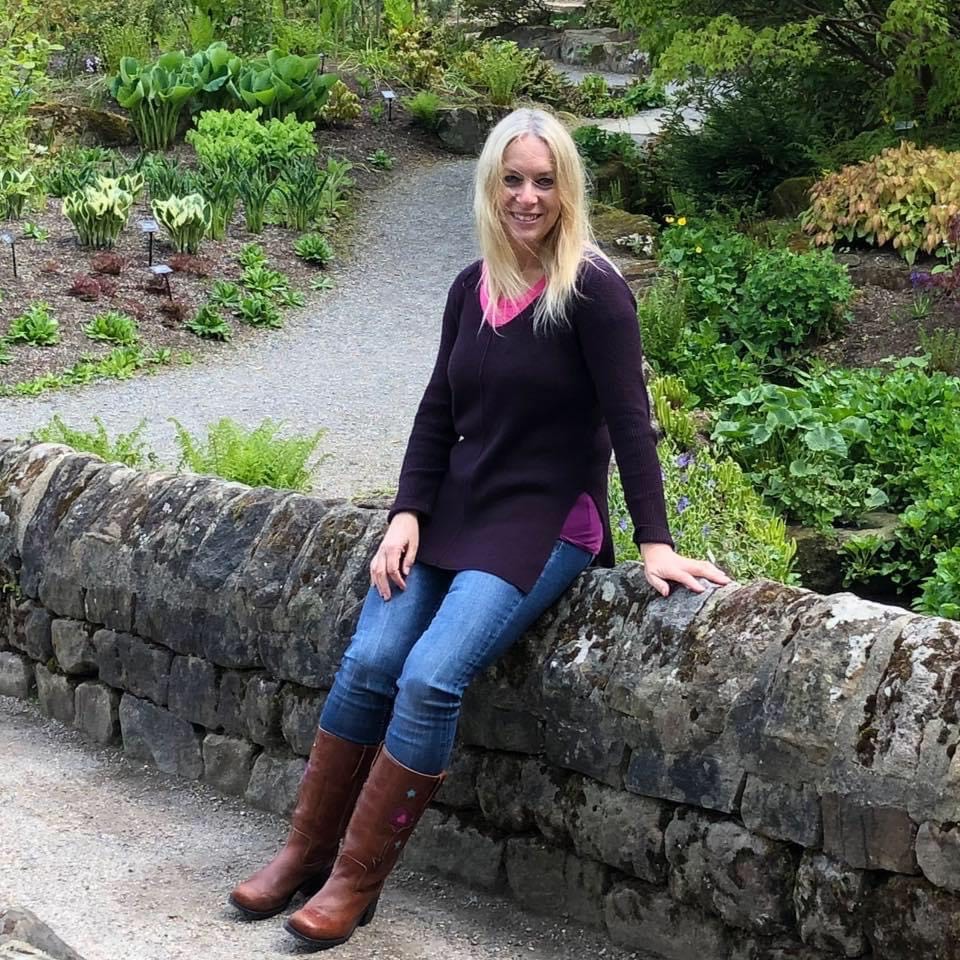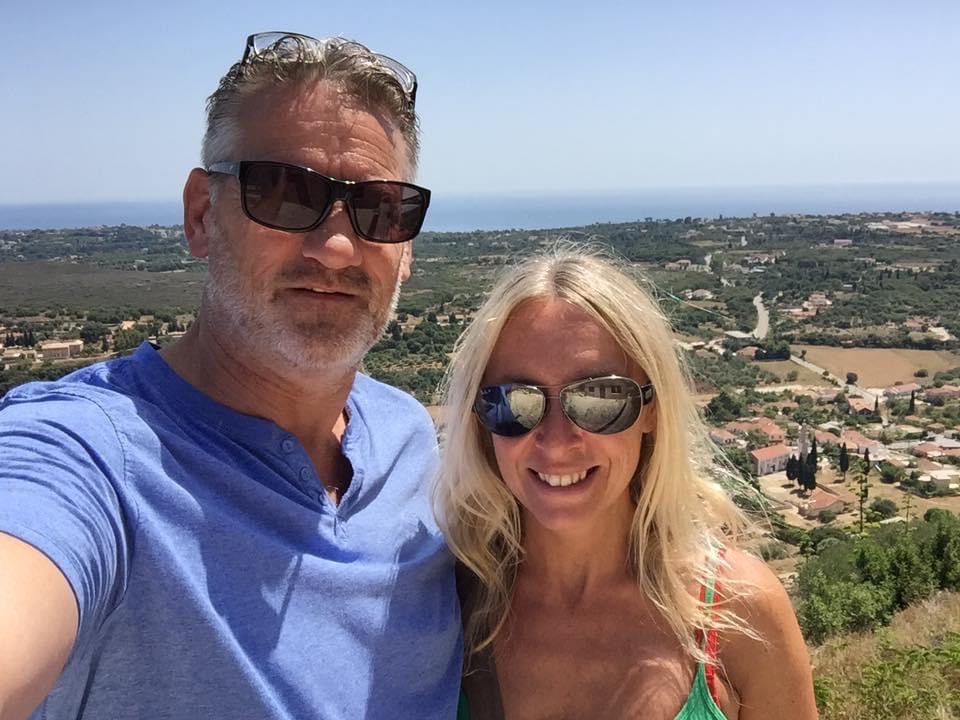Laughter Really Is The Best Medicine As Donna Recovers From Mouth Cancer
Donna Hamer has more reason than most to keep a smile on her face during these difficult times.
 Donna, 53, was diagnosed with oral (mouth) cancer a year ago and is now completely disease free.
Donna, 53, was diagnosed with oral (mouth) cancer a year ago and is now completely disease free.
Smiles and laughter have formed an important part of her exercise recovery plan after a seven-hour operation to remove the tumour left her unable to open her mouth more than a centimetre.
Talking was also recommended as therapy as Donna learned how to manage some of the everyday tasks that most of us take for granted.
She’s now back to normal and busy at work after landing a job as Communications and Engagement Manager with the West Yorkshire and Harrogate Health and Care Partnership just months after her surgery.
Donna’s cancer journey begins when she and her husband Steve returned from a long-awaited road trip, driving through Greece. She felt something slightly odd in the top of her mouth, close to her molar on the left hand side, and at first, thought that she had chipped a tooth during the night.
“I couldn’t even see it, it just felt like a scratch,” she said. “I asked my husband if he would have a look and he couldn’t see it either.”
It was three months before Donna sought advice from her dentist, during a routine appointment for a filling. After taking a photograph, he told her that it looked like a stubborn mouth ulcer, but erring on the side of caution, he would refer Donna – who lives in Bury - to a cancer specialist at North Manchester General Hospital.
“I was told that I shouldn’t be frightened, as it most likely wasn’t cancer,” she said. “I genuinely wasn’t worried and I attended the appointment on my own.
“The surgeon was very experienced, and told me that it didn’t look like any mouth cancer that he had seen before, and recommended a biopsy. Even the biopsy nurse felt it was probably just a dermatological condition.”
However, when she returned to the hospital for her follow-up appointment, the surgeon confirmed that she had squamous cell carcinoma but that he was confident it could be removed through surgery.
Mouth cancer is the sixth most common cancer in the world, though is much less prevalent in the UK, where around 8,300 people are diagnosed with oral cancer each year. Two in three of those cases are in adults over the age of 55. Men are more likely to develop mouth cancer than women, and the risk is significantly increased by smoking or using tobacco in other ways, such as chewing, and drinking alcohol.
Donna has never smoked, only drinks alcohol in moderation, eats healthily and enjoys keeping fit and active.
“I was absolutely floored,” said Donna. “I really didn’t think I had cancer and it was at that point that I broke down. My husband and the nurse were in tears, too.
“But the support from Macmillan was just fantastic. It was there immediately, and the Cancer Nurse Specialist just sat and talked to me and my husband, with a brew.”
There were some initial complications in arranging surgery for Donna due to a heart condition with which she was diagnosed at the age of 36, and for which she had been fitted with a pacemaker. Long QT syndrome (LQTS) is a little-known genetic heart condition which affects how the heart beats. It can result in fainting, drowning, seizures or sudden death.
It proved helpful that the Manchester Heart Centre is located in the Royal Infirmary to which Donna was admitted for her surgery in April 2020, providing easy access to the specialist anaesthetic advice that was needed for her operation.
It took seven hours and two Consultant Surgeons to complete the surgery, which included a neck dissection to remove some of Donna’s lymph nodes, since their involvement in the cancer cannot always be seen and therefore ruled out from a CT scan.
Donna spent the first night post-op in Intensive Care and was nil by mouth for the following week, her sole source of food being through a tube. Once discharged from hospital, Donna could barely open her mouth and lived on porridge with raw honey until more able to eat normally.
Under normal circumstances, the hole that was left in Donna’s mouth – the size of a 50p piece – would have been closed during the surgery using tissue and veins from her wrist, followed by a graft using skin from her tummy area.
However, this would have meant a longer stay in hospital, and during Covid, it was felt more appropriate for her to be fitted with a temporary palette and discharged home as soon as possible.
The hole has now healed, and Donna’s mouth is almost back to normal, following a programme of speech therapy.
"I felt in really good hands the whole time"
Despite the significant challenges of her diagnosis and treatment, Donna says she felt safe throughout her stay in hospital early on in the Covid-19 pandemic. Many of the staff who cared for her were undertaking jobs different to their usual role as a result of the pandemic, and were “rising positively to the challenge.”
“I felt I was in really good hands the whole time,” she said. “The worst thing was being unable to have visitors due to Covid, but Facetime really came into its own! I was in hospital during last year’s heatwave, and it was great just to feel the breeze coming in through the window.”
Since her diagnosis and treatment, Donna has been amazed by the number of people affected by cancer who are keen to help others facing the same journey. While Covid has affected the way in which people connect with each other, largely removing the option of meeting face to face, people have found other ways to provide support.
One example is a dedicated Facebook group, connecting people worldwide who have been affected by head and neck cancer. Friends and family networks are invaluable, too, she says.
Among those who have helped Donna steer her way through the difficult times over the past year is her nephew Stuart, who sadly died last May, aged 36, 10 years after being diagnosed with a brain tumour.
“He was such an inspirational and brave young man, who gave me advice and support at the beginning of my cancer journey – just months after he had been told that his cancer was incurable.

Donna also thanked her husband Steve, a retired mental health nurse, (pictured right) for being by her side. “I couldn’t have asked for better support,” she said.
Donna now receives regular checks every six to eight weeks, and hopes that by sharing her experiences, others will be encouraged to seek advice if they notice changes in their body, signs and symptoms that are unusual for them.
“There are increased risk factors for all cancers, but in the end, it can happen to anyone. If you’re worried, get checked out.”
For more information about signs, symptoms and treatment of mouth cancer:
Head and Neck Cancer Foundation








